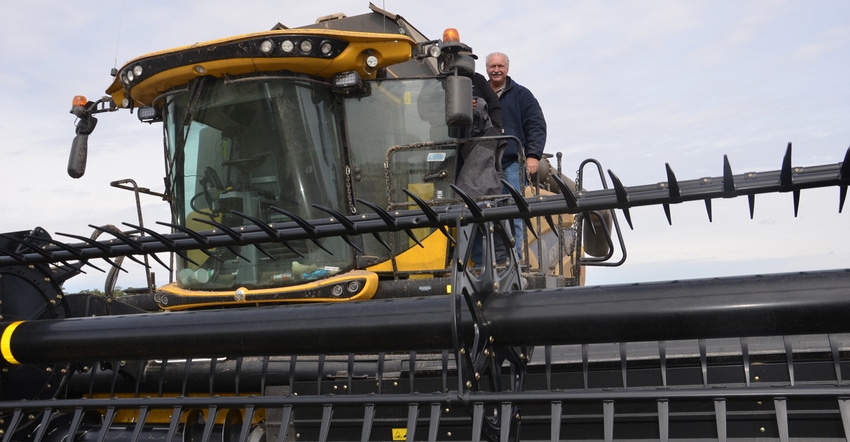November 1, 2018

Some 20 months into her term as lieutenant governor and Indiana secretary of agriculture, Suzanne Crouch led a trade mission to Manitoba in Canada. It was the first trade mission led by Crouch. Other lieutenant governors and governors have led trade missions to various destinations around the world.
Crouch took along key business and farm group leaders from Indiana, including Randy Kron, an Evansville farmer and president of Indiana Farm Bureau Inc. I visited with him in the combine cab while he harvested soybeans near Griffin recently, and he shared that the mission provided insights into what business leaders in a country Indiana trades with consider as important issues. It helped him better understand why Canada might have been motivated to enter into a new agreement with the U.S. and Mexico. President Donald Trump announced the United States-Mexico-Canada Agreement soon after Crouch, Kron and the rest of the Indiana delegation returned home from Manitoba.
Kron learned that tariffs are hurting businesses in Canada, too. He also discovered that far more than agriculture is affected by tariffs. No doubt it’s important for Indiana leaders — especially farmers and farm leaders such as Kron — to have a feel for what motivates leaders to act in other countries with which the U.S. and Indiana trade.
Why trade missions matter
Crouch shared her thoughts about the Manitoba trade mission with me during an exclusive interview in her statehouse office recently.
“My first observation is that the people who met with us in Manitoba were receptive to our ideas about developing trade opportunities in agriculture,” Crouch said. “They were excited that we were giving them attention and wanting to work with them.”
Sometimes people wonder if trade missions lead to concrete action once those involved return to their respective homes. People who have led previous trade missions report that on almost every trip, relationships develop between participants from Indiana and the people they meet that result in business arrangements in the not-too-distant future. That means more trade and an economic boost, even if it’s one small deal at a time.
Crouch can point to something concrete she brought back from her first trade mission. “We signed a memorandum of understanding with our counterparts in Manitoba,” she said. “It relates to working together in areas of youth leadership, economic development and education going forward.”
Crouch expects good things to come from the agreement to work together to benefit each other. Meanwhile, she also believes the trip was valuable for her and everyone who participated because it reminded everyone of how important other countries are to the U.S. and Indiana.
“Canada is too important for us not to reach out to them,” Crouch said. “We were reminded that 90% of the population in Canada lives within 100 miles of the U.S. border. We need to think about what further steps we can take to work together.”
Uplifted by her first successful ag trade mission, Crouch and her staff are looking for more possibilities for trade missions in the future. The Indiana State Department of Agriculture that Crouch heads is deeply involved in selecting possible destinations and putting the details together so that trade missions can happen. Look for another agricultural trade mission to be led by Crouch, perhaps to Mexico, early next year.
Comments? Email [email protected].
You May Also Like




